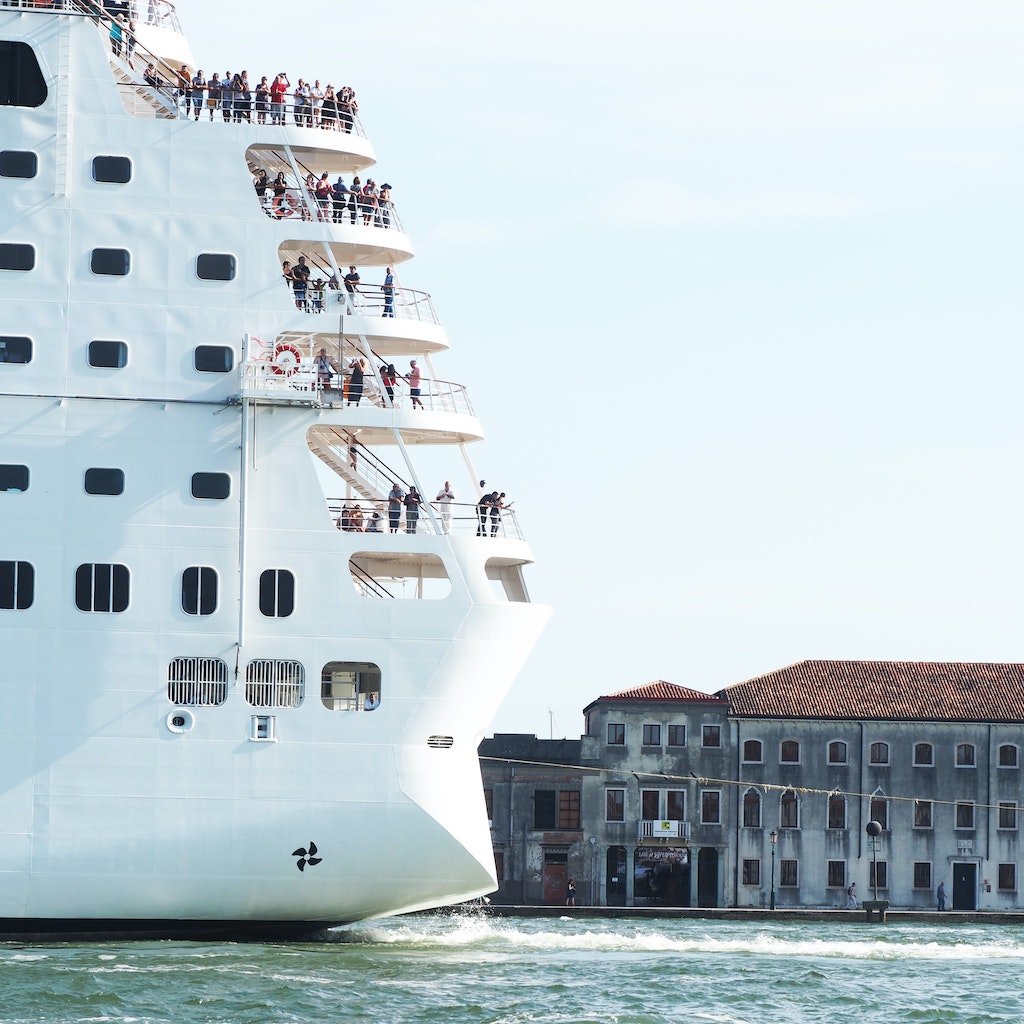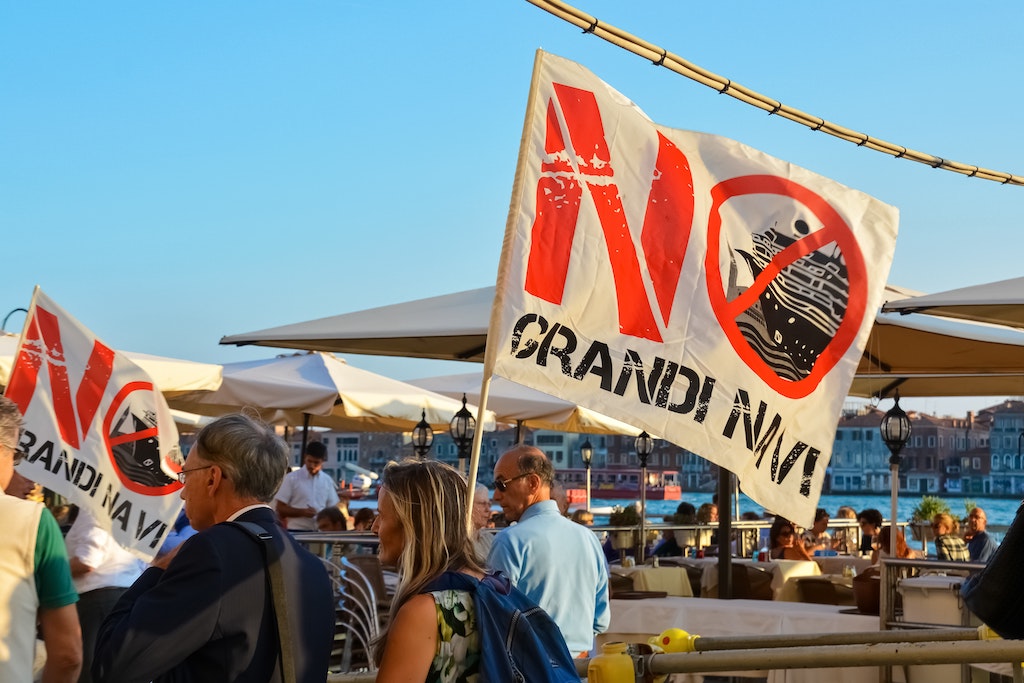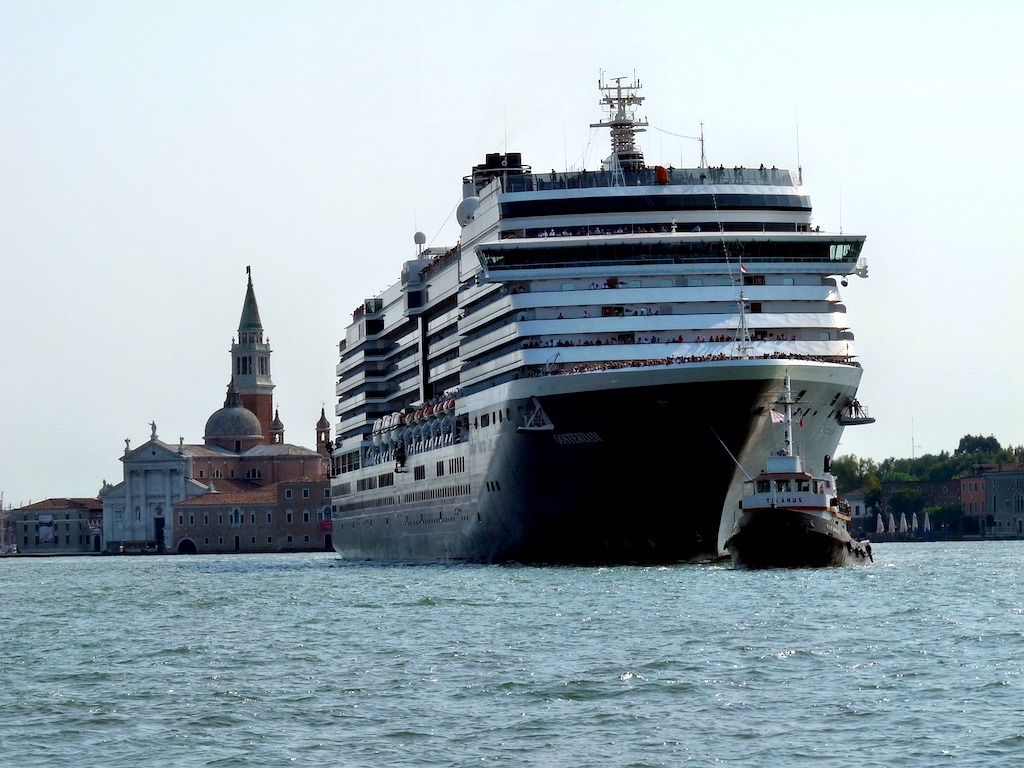3 Mins Read
After years of campaigning from local groups and environmentalists, Italy has banned cruise ships from the centre of Venice. From now on, cruises weighing more than 25,000 tonnes will not be able to dock at the world heritage site. It comes after a warning from UNESCO that Venice would be put on its endangered list unless a permanent cruise ban came into force.
Venice has officially banned cruise ships from entering the lagoon, a move welcomed by local and environmental activists. Campaigners have been pushing for the ban for more than a decade, citing the overcrowding, social impact and environmental devastation that cruise liners have caused to the world heritage site.
Venice cruise ban
Under the ban, which came into effect on August 1, ships that weigh more than 25,000 tonnes would be barred from entering the city centre. It is a permanent ban, unlike the temporary halts that the Italian government had previously introduced in recent years.

The law means that only small passenger ferries and freight vessels will be able to enter the historic centre through the Giudecca canal. It comes just a month after Unesco said that unless Italy permanently banned cruises from docking in Venice, the city could be put on its endangered list.
“The decree adopted today constitutes an important step for the protection of the Venetian lagoon,” a statement from prime minister Mario Draghi’s office read.
Read: Opinion – Covid has given us the chance to ditch cruises for good. Let’s take it.
‘We finally seem to have got there’
For more than a decade, activists have been arguing that a cruise ship ban was necessary to protect Venice’s cultural heritage, local community and environment. After a hiatus as a result of the halt in tourism due to the pandemic, protests were reignited in June this year when a 92,000-tonne cruise liner sailed into the centre on route for Croatia and Greece.
The activists say the large ships passing through the Venice lagoon have polluted and threatened the stability of the city’s buildings.

Commenting on the permanent ban, which comes after years of the government hesitating to take action, Tommaso Cacciari, the leader of the group No Grandi Navi, told the Guardian: “We finally seem to have got there.”
Global cruise industry problem
Many have celebrated the cruise ship ban in Venice, but the impact of cruises span far and wide. The global cruise ship industry has come under increasing scrutiny in the past year as they have become hotbeds of coronavirus outbreaks, endangering the lives of its crew members.
But it has a long history of ethical and environmental violations even prior to the pandemic, from destroying the planet with illegal ocean pollution and high-emissions operations to the exploitation of workers.
While the cruise industry touts the economic benefits of tourism to local communities, many small businesses note that much of the income stays on the ship. Cruises predominantly offer inclusive packages for passengers, which means that tourists often return to the ship for their meals and avoid spending at their destination.
Lead image courtesy of MaxPixel.




